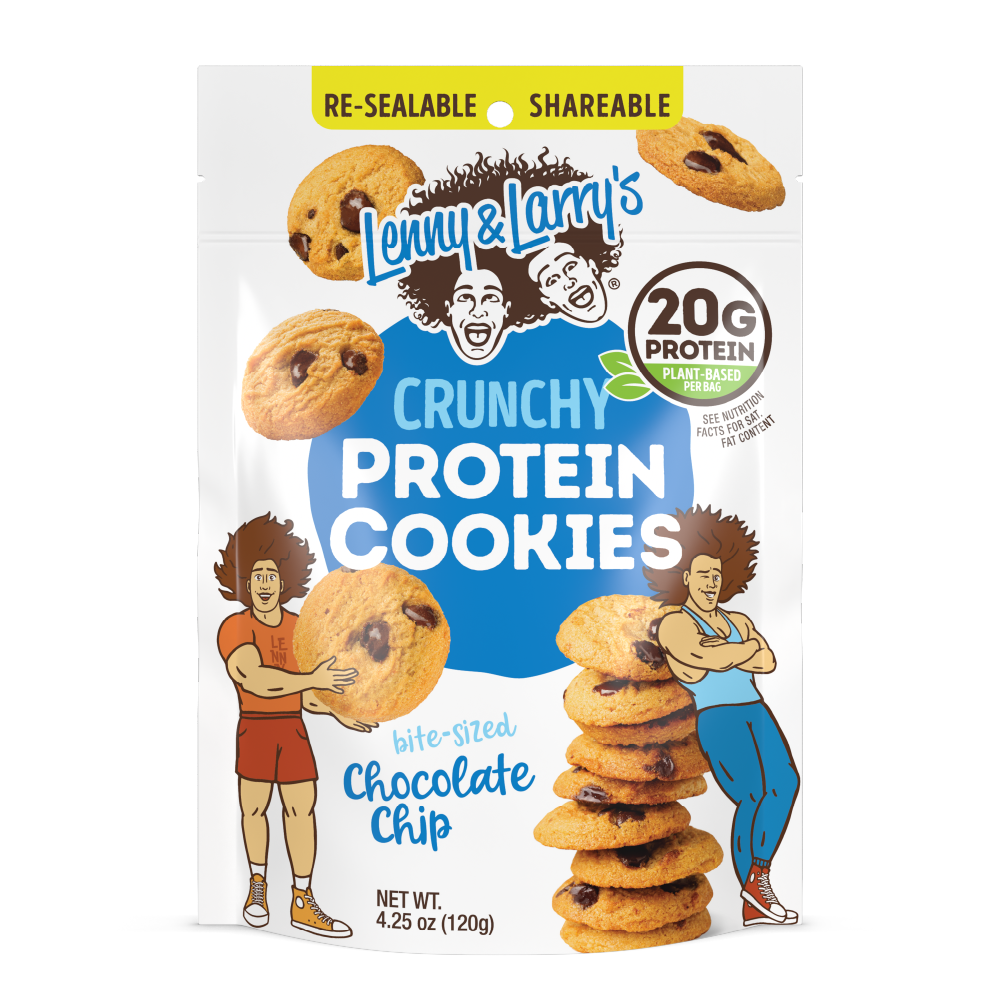Whether I work out or not, what's the right amount of water for me?
Your body is composed of approximately 60% water, and even slight dehydration can impact focus, mood, and energy levels.
The tricky part?
Most people have no idea how much water they should be drinking each day (and advice on the topic is all over the place).
You've probably heard the classic "8 glasses a day" rule, but that number doesn't actually fit everyone. Your hydration needs depend on various factors, including body size, climate, diet, and physical activity level.
The big question is: how much should you drink on a regular day compared to when you work out?
Before you begin - always consult your physician before beginning any exercise (or dietary) program(s). This general information is not intended to diagnose any medical condition or to replace your healthcare professional. Consult with your healthcare professional to design an appropriate exercise prescription (or dietary program) that's right for you.
Why Water Intake Matters
Water shouldn't just be something you sip when you're thirsty.
Water is the foundation of nearly every biological process in your body.

Even at rest, you lose fluids through breathing, sweating, and urination. Consistent water intake is essential for maintaining balance.
Understanding how water supports your daily functions shows why staying hydrated matters more than you might realize.
Water's Role in Aiding Energy and Focus
Even mild dehydration can cause fatigue, headaches, and a noticeable drop in concentration. Research shows that losing just 1–2% of body water can impair cognitive performance and short-term memory. When your body maintains blood volume more effectively, it ensures that oxygen and nutrients reach your brain (allowing you to stay alert and productive).
Water's Role in Digestion and Nutrient Absorption
Water is a critical component of digestion from start to finish. It helps break down food in the stomach, dissolves nutrients, and transports them through the bloodstream so they can be absorbed. Without sufficient water, digestion slows, resulting in constipation and reduced nutrient absorption. Think of water as the medium that allows vitamins, minerals, and energy-yielding nutrients to actually benefit your body.
Water's Role in Temperature Regulation and Exercise Recovery
One of water's essential roles is controlling body temperature. Through sweat, your body releases heat to prevent overheating during physical activity. Replacing that fluid is important to avoid heat stress and maintain normal muscle function. After exercise, water supports recovery by helping clear metabolic waste, restoring fluid balance, and reducing muscle soreness. Electrolytes may also be needed if sweat losses are high, but water remains the primary vehicle for cooling and recovery.
Fluid Loss Happens Even at Rest
Breathing alone causes fluid loss, as water vapor is released from the lungs with every exhale. The kidneys are also constantly at work, filtering blood and excreting excess waste through urine. And think about your largest organ (skin); there's natural evaporation outside of sweating that constantly happens.
Daily hydration is a non-negotiable, whether you step into the gym or not.
General Guidelines for Daily Hydration
You've probably heard advice ranging from "just drink water when you're thirsty" to the well-worn "8 glasses of water a day."

The truth lies somewhere in between.
Scientific research provides a clearer picture of how much fluid most people need, though individual factors will still shape your exact intake.
Baseline Recommendations
The National Academies of Sciences, Engineering, and Medicine (NASEM) recommend an average of:
- About 3.7 liters (125 ounces) per day for men
- About 2.7 liters (91 ounces) per day for women
These values represent "total water intake," which includes not only the water you drink but also the water naturally present in foods such as fruits, vegetables, and soups.
Roughly 20% of daily hydration typically comes from food, while 80% comes from beverages (NASEM Report, 2005).
Why "8 Glasses of Water a Day" Might not be Enough
The idea of drinking eight 8-ounce glasses of water daily (approximately 2 liters) gained popularity because it was easy to remember. However, it does not accurately reflect the actual fluid needs of the average adult. This rule can underestimate actual hydration needs for more active individuals, those living in warm climates, or those consuming foods higher in protein and sodium.
Listen to Your Body, But Don't Rely on Thirst Alone
Have you ever heard the saying, 'If you're thirsty, you're already dehydrated?'
Thirst is a helpful indicator, but it lags behind your body's actual fluid status. By the time you feel thirsty, you may already be experiencing early dehydration. A practical day-to-day guide is to check urine color: pale yellow often indicates adequate hydration, while darker shades may indicate the need for more fluids.
Practical Water (Hydration) Targets
- Aim to refill a standard 16–20 oz bottle four to six times daily (of course, this depends on your physical size and level of activity).
- Remember that coffee, tea, and milk all count toward hydration, but water should remain your primary source.
- Spread your intake throughout the day instead of relying on one or two large drinking sessions.
Energy Drinks, Caffeine, and Hydration

Energy drinks are a popular pick-me-up, but their caffeine and sugar content can influence hydration in ways many people overlook.
How Caffeine Affects Hydration Levels in Our Bodies
Caffeine acts as a mild diuretic, which means it increases urine production. However, studies show that moderate doses (like those found in most energy drinks) don't necessarily cause net dehydration (and the fluid may still contribute to your daily hydration levels).
That said, pairing caffeine with sugar or consuming it on an empty stomach can increase heart rate, raise stress hormones, and leave you feeling more drained if you're already low on fluids.
Typical Energy Drink Levels
Most cans contain 160–200 milligrams of caffeine, which is equivalent to approximately two cups of coffee. For reference, the safe daily intake for healthy adults is about 400 mg of caffeine, so one energy drink may push you close to the halfway point.
Countering the Effects of Energy Drinks with Water
If you do choose an energy drink:
-
- Pair it with water: Drink at least 12–16 oz of water alongside a standard can to help offset the mild diuretic effect of caffeine.
- Avoid stacking caffeine: Don't combine multiple energy drinks or mix them with coffee, as this can amplify the strain on your hydration and cardiovascular system.
- Time it right: Use them strategically (before a workout or during a mid-day slump), not as a hydration substitute.
- Balance electrolytes after sweating: If you drink an energy beverage before exercise, consider adding an electrolyte source later in the day to replenish sodium and potassium lost through sweat.
Takeaways:
- Consuming one energy drink a day doesn't automatically dehydrate you, but it should never replace water (or be considered a hydration source).
- Limit yourself to one energy drink per day.
- Counter an energy drink with consistent fluid intake, and keep daily caffeine under the recommended 400 mg limit to stay hydrated and balanced.
Factors That Influence How Much Water You Should Drink
Hydration needs vary from person to person. Your body size, environment, diet, and health all shift the amount of water you require.
Here are some scenarios to help act as a water intake baseline:
- Body Size: If you're taller or heavier, your water needs rise. A practical target is an extra 12–16 oz for every 25 pounds above average body weight.
- Hot or Dry Climate: Living in a hot climate (such as the summer climates of Phoenix, Arizona, or Hot Springs, Arkansas) or at high altitudes accelerates fluid loss. Add 1–2 extra cups throughout the day, and keep a bottle on hand for outdoor use.
- Active Lifestyle: Exercise increases sweat loss. Drink 16–24 oz per hour of activity, on top of your daily baseline (also don't forget to replace electrolytes and other minerals).
- High-Protein or Salt-Rich Diet(s): Protein metabolism and consumption of salty foods require more water to process. Add 1 extra 8 oz. glass per meal (if your diet leans heavily in these areas).
- Age and Health: Older adults may experience a reduced sensitivity to thirst. Set reminders to sip water regularly. If you take medications with diuretic effects, consult your healthcare provider for adjusted hydration targets.
Takeaway: Start with the baseline (3.7L for men, 2.7L for women) and layer in these adjustments to better fit your daily situation.
Practical Tips to Stay Hydrated
Staying hydrated doesn't have to feel like a chore. Small daily habits can keep your water intake on track without overthinking it.
- Keep a Reusable Bottle Nearby - Having water in sight makes it more likely for you to sip consistently. Aim to refill it several times a day instead of trying to drink large amounts at once.
- Check Your Urine Color - A pale yellow color usually indicates good hydration, while darker shades suggest you may need to increase your water intake. This is a quick, real-time check you can use anywhere.
- Spread Intake Throughout the Day - Drinking too much at once can cause bloating or frequent trips to the bathroom. A steady flow of smaller amounts supports digestion and energy.
- Pair Water With Meals and Snacks - Adding a glass of water with each meal ensures hydration is tied to routine. It also helps your body break down and absorb nutrients more efficiently.
- Eat Water-Rich Foods - Fruits like watermelon, oranges, and strawberries, as well as vegetables like cucumbers and lettuce, add hydration while boosting vitamins and minerals.
- Set Digital Reminders - If you tend to forget to drink water, use your phone or smartwatch to nudge you every couple of hours. Simple prompts build consistency.
- Balance Water and Electrolytes When Needed - On very active days or in hot conditions, consider an electrolyte drink to replace what you lose through sweat. For most regular days, plain water is enough.
Common Mistakes with Water Intake and Final Hydration Takeaways
When it comes to hydration, more isn't always better.
Drinking excessive amounts of water without replacing sodium can cause hyponatremia (a dangerous condition where sodium levels in the blood drop too low). While rare, hyponatremia often occurs in athletes or individuals who consume large amounts of water in a short period. The key is balance, not overload.
Another mistake is relying on soda, coffee, or alcohol as your main hydration source(s). While they do contribute some fluids, their added sugars, caffeine, or alcohol content can increase fluid loss or strain your body in other ways. These should not replace water.
Practical Hydration Takeaways
- Start with the baseline: ~3.7L/day for men, ~2.7L/day for women.
- Adjust for your needs: Add fluids according to body size, heat, and activity level.
- Limit your reliance on energy drinks, soda, or alcohol: Use them sparingly, accompanied by water.
- Simple check: Pale yellow urine, steady energy, and clear focus are signs you're on track.
 Lenny and Larrys
Lenny and Larrys
